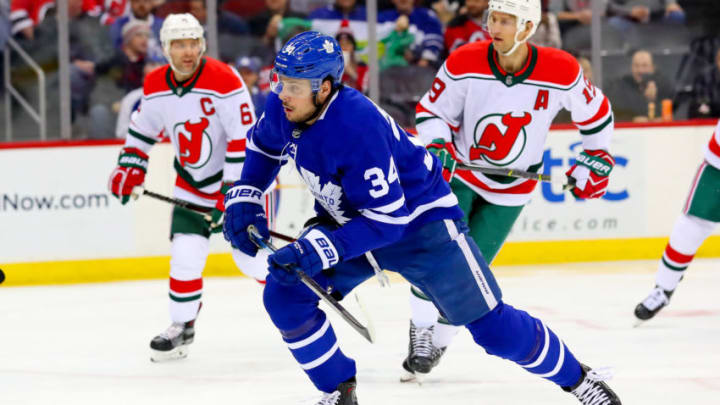Many national hockey analysts have named the New Jersey Devils as a team that could send an offer sheet to a star player this offseason. It’s not likely because of what it would cost in compensation.
There are so many great players on the last year of their deal this year. The New Jersey Devils could really use another star player on this roster. In fact, one more star might change them from bottom feeders this season, to perennial contenders for seasons to come. Obviously, the Devils need answers at defense and goalie, but there’s a possibility those answers are in the system.
Here’s the problem, the players that are available are all restricted free agents. Restricted free agents haven’t been signed away from other teams in years. Shea Weber signed his offer sheet from the Philadelphia Flyers, but ended up getting matched by the Nashville Predators.
That’s the problem, at least one of the problems with restricted free agency.
Many analysts say that teams don’t go after restricted free agents because they are worried how it would look, and that same team would do the same to them when they have a restricted free agent. That makes no sense. If that was the case, wouldn’t that be collusion, which is something that would bring lawsuits from the players. It hurts the competitive balance of the league, and costs money for the players.
No, the real problem is the rules the NHL has on restricted free agency. It’s fine if the other team is allowed to match contracts. That should be the real difference between restricted and unrestricted free agency. However, one thing that’s really hurting teams from making a run at restricted free agents is the penalty they must pay for getting them.
Right now, the compensation for any player who gets $1.4 million and $2.02 million gets a third-round pick. Move that up to $4 million, and that turns into a second round pick. After that is where things get ridiculous.
If you go up to $6 million per season in the contract for a player, then the team that signs that player has to pay up a first AND third-round pick in the next draft. For a team to sign a players to $6 million on something the other team won’t match, it has to be a massive overpay. Not only that, but now they lost two of their top three picks?
More from Pucks and Pitchforks
- Should New Jersey Devils Try Load Management With Vitek Vanecek?
- New Jersey Devils Will Prove That Last Year Wasn’t A Fluke
- New Jersey Devils: Luke Hughes’ Playmaking Will Outshine His Mistakes
- New Jersey Devils: Chase Stillman’s Performance Causes Concern
- Can Devils Fans Separate Zach Parise Heartbreak From Achievements?
To sign these major players away, it’s going to cost more than any team is willing to give up. Signing a player between $8 million and $10 million will cost a team two first-round picks, a second and a third.
What?
That’s asking for the compensation you can’t even get when trading a star player. The Buffalo Sabres had trouble getting a team to give up one first-round pick for Evander Kane, let alone two plus two other picks.
Then, the real nutty compensation. If a team plays a player more than $10.148 million, that team is not only paying that premium in contract, but also must give up four first-round picks. A team could get 99.9999% of all players in the league if they offered four first-round picks in a trade. Heck, whoever ends up being the next GM of the Edmonton Oilers would at least listen to an offer of four firsts for Connor McDavid.
Think about the massive free agents that are available this offseason. Auston Matthews, Mitch Marner, Sebastian Aho, Patrik Laine and Mikko Rantanen are all “available.” Do you think this team could sign any of them without the other team matching unless they went over $8 million at least? Half of those players could break $10 million per season.
This is where the Devils will bow out of the restricted free agency market. Ray Shero could decide to trade for one of the many restricted free agents if their teams can’t come to an agreement. That’s really the only possibility here. There’s zero chance Shero comes after one of these players because that’s just way too much to give up, even for the star power these players bring. If they get injured for one season, and things fall flat, then your team can’t rebuild on that season because the first-round pick is gone for four years.
The compensation rules need to change. This is bad for the players, and only suits the owners. This drives the price of players way, way down. This could also cause more holdouts like we saw with William Nylander. Not once did people talk about how this system just didn’t work. People just spoke about how the Toronto Maple Leafs didn’t need him, or that he was being selfish. He was available, yet teams didn’t try to sign him.
It shows that the next CBA, these compensation rules must end. Keep restricted free agency simple, and have it just a matching system.
